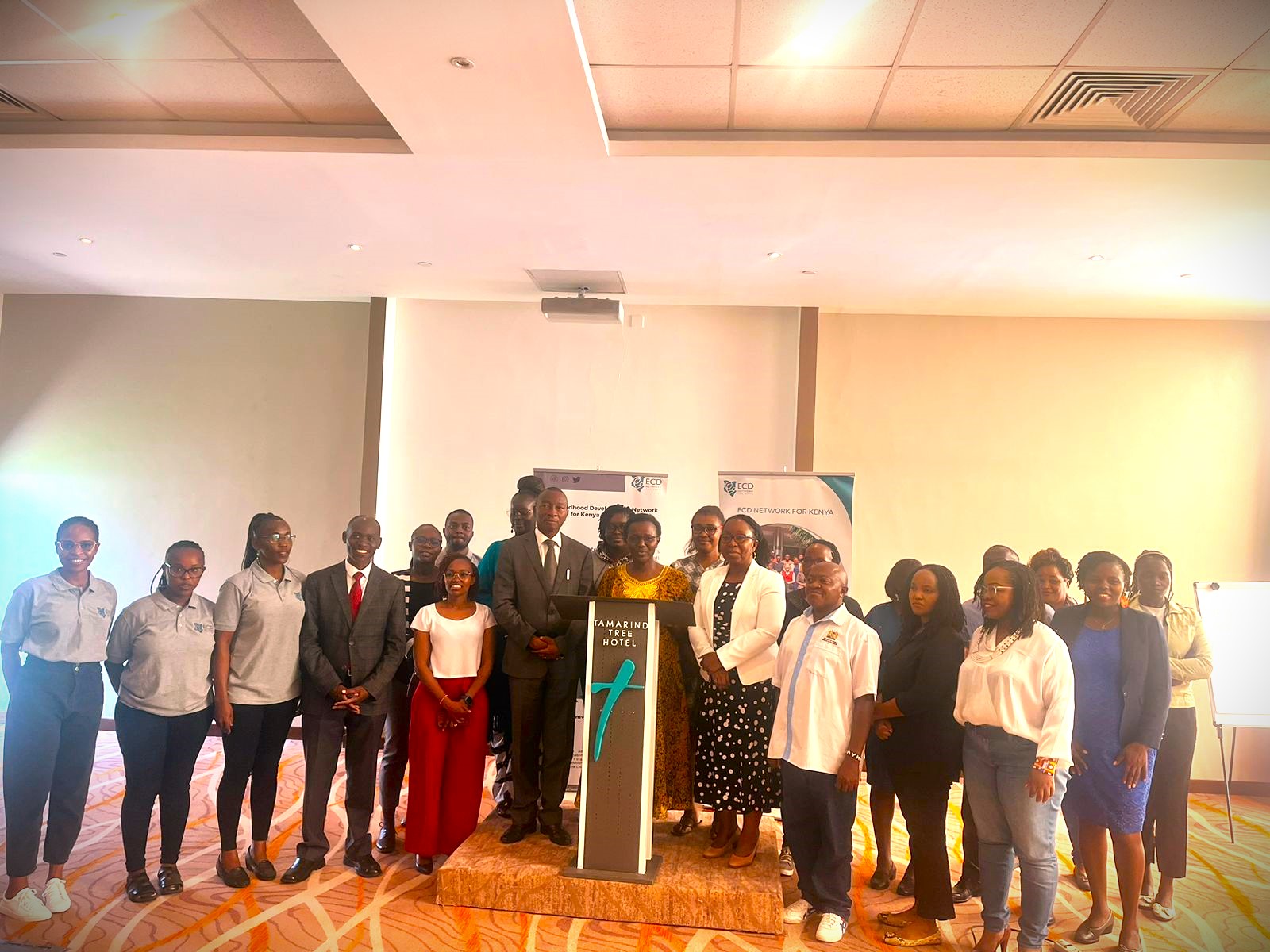By Aoma Keziah and Cynthia Masibo,
The ECD Network for Kenya, alongside key stakeholders in the childcare sector, held a significant press conference today to reflect on the current status of childcare in the country. The event brought together policymakers, childcare providers, non-governmental organizations, and experts to discuss the challenges and opportunities in improving early childhood development (ECD) services.
The highlight of the conference was the speech by Mr. Philip Nzenge, the Deputy Director of the Directorate of Children’s Services, who represented the Cabinet Secretary. Mr. Nzenge emphasized the critical importance of quality childcare in shaping the future of the country, highlighting the government’s ongoing efforts and policies aimed at strengthening ECD services.
“In our quest to provide a nurturing and supportive environment for our children, we must ensure that all stakeholders, including parents, caregivers, and the government, work in unison,” Mr. Nzenge stated. He detailed the government’s commitment to increasing funding for ECD programs, improving the training of childcare providers, and enhancing the infrastructure of childcare facilities.
The conference also featured presentations and discussions from various actors in the childcare space, including representatives from UNICEF, USAID, and other non-governmental organizations. They shared insights on best practices, challenges, and opportunities in the childcare sector.
One key topic of discussion was the need for comprehensive policies that support the holistic development of children. Stakeholders called for increased investment in early childhood education, healthcare, and nutrition, stressing the importance of an integrated approach to childcare.
Participants also addressed the pressing challenges faced by the sector, such as inadequate funding, lack of trained personnel, and insufficient facilities. They urged the government and private sector to prioritize investments in early childhood development, noting that the benefits of such investments extend beyond individual children to society as a whole.
The ECD Network for Kenya reiterated its commitment to advocating for better childcare services and called for collaborative efforts to ensure that every child in Kenya has access to quality early childhood education and care. The network emphasized the role of community involvement and the need for continuous dialogue among stakeholders to address the evolving needs of children and their families.
A child’s earliest years (0-3) are the most critical period for their development requiring them to be in a safe, and stimulating environment. The absence of a safe and growth-enabling environment deprives children’s ability to achieve their developmental milestones. Childcare is often regarded as a woman’s role in most family setups, which burdens, and limits women’s labor participation. This calls for the need to create awareness at national, subnational and local levels on proper childcare, and enhance women’s labour force participation.
The World Bank estimates that about 350 million children below primary school age, representing more than 40 per cent of that population, do not have access to Proper childcare. Additionally, it is estimated that about 40 per cent of pre-school Children are not enrolled. The childcare burden is widely felt among children under the age of three years, because the costs of keeping them is generally higher and few countries have policies or provision that cater for their needs.
The gaps in access to childcare are acute in low-income economies where resources and policies are not available to support the children. In Africa, about 35 million children live without parental care, according to a report by the African Committee Of Experts on the Rights and Welfare of the Child. Poor quality of childcare impacts a child’s development outcomes and future potential in life.
Against this backdrop, countries have an obligation to expand access to quality, affordable childcare. According to the World Bank, national governments should Implement a wide range of policies, including those that correct the market failures to boost economies and build a strong enabling environment to expand access to quality, affordable childcare.
As the conference concluded, there was a renewed sense of urgency and dedication among all participants to work towards creating a robust and effective childcare system in Kenya. The collaborative spirit demonstrated at the event underscored the shared responsibility of all sectors of society in nurturing the youngest members of the nation.
The press conference featured a comprehensive review of the current state of childcare in Kenya, noting significant gaps in accessibility, affordability, and quality of services. Despite the progress made in policy formulation, many children, especially those from marginalized communities, still lack access to essential ECD services.
As the country moves forward, the collective efforts of all actors in the childcare space will be essential in ensuring that every child has the opportunity to thrive and reach their full potential.
The Day of the African Child is marked every year on June 16th. It is an important milestone and a reminder of the struggles and liberation of children in Africa. The day provides African governments with the opportunity to review progress made in protecting and promoting the welfare of children and setting new goals and strategies to enhance them. The theme for this year being “Education for All Children in Africa, the time is Now”.










